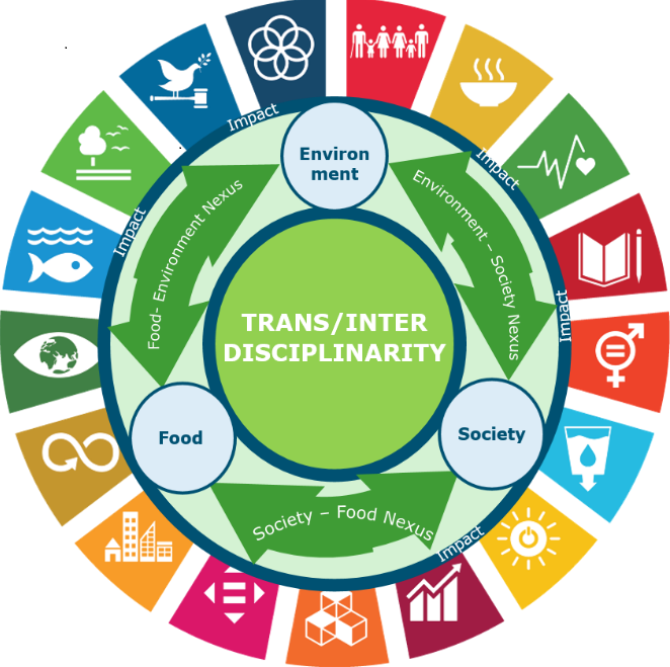Combined insights stimulate sustainable food production in deltas under pressure
This is part 3 of a blog series on food systems. This article was written by Catharien Terwisscha van Scheltinga.
Deltas world-wide are increasingly under pressure. They form a dynamic link between land and water, fresh and saline environments, connecting the natural environment with production systems organized by human intervention. Deltas are among the most productive agriculture and aquaculture areas, while at the same time they face challenges of urbanization, flooding, drought, cyclones, sea level rise, salinity intrusion and subsidence.
It is evident that changes in deltas are occurring in an ever more rapid pace: climate change as well as development-driven changes entail that the food system must change towards higher sustainability and resilience while simultaneously meeting increasing demands for food production. Not only the number of people in deltas are increasing, but also their diets are changing, as are the risks for and constraints to production and consumption.
In 2019 Wageningen University & Research started the strategic research project Deltas under pressure as part of the Food security and valuing water research programme. In this project, the food system approach is used to achieve a better understanding of the challenges deltas are facing and to develop solutions for a transition towards more sustainable and resilient food systems in deltas. Besides the link between food systems research and adaptive delta management, which is the focus of this blog, the project enhances its insight by bringing together farming system research, understanding mangrove/shrimp and livestock systems, and decision making of farmers in deltas.
Food and water knowledge linked
The Netherlands and Wageningen University & Research as a knowledge institute have been working in major deltas worldwide both in agriculture and food on the one hand, as wells as climate and water management in the other. However, different approaches were used in policy and decision making by water and agriculture/food researchers. In this project, we specifically look for combining the best of both worlds. We use the existing insights from one sector to improve planning, policy making and decision making in the other. So we linked the adaptive delta management methodology that has been applied in both the Mekong Delta and the Brahmaputra/Ganges delta for the last 10 years approximately, to the food systems approach. A very interesting find was, that in the Food System Approach, initially transition was not part of the analysis. While one of the objectives of adaptive management of deltas is to build consensus around, decide on and find funds for future interventions. And in the adaptive delta management approach key pillars are vision creation, back-casting, scenario development, learning and co-creation, while key elements in the Food System approach are the feed-back loops and the non-linear interlinkages in the food systems. Another important asset of the food systems approach is envisioning the effects on the four outcomes of a food system approach: production, healthy diets, equitable distribution of benefits and sustainability.
We found it therefore an eye opener to look at the two approaches, food systems thinking and adaptive delta management, side by side. One plus one added up to more than two! Two examples to highlight this.
Mekong Delta
At an earlier stage, for example, we developed scenarios based on climate projections within the adaptive delta management approach for adapting to Vietnam’s increasingly saline Mekong Delta. Consequently, the needed changes were developed with a system approach to Food Systems in mind, resulting in using the increasing salinity as opportunities to address multiple outcomes for the food system: the production of healthy and nutritious food in a sustainable way for the environment.

Illustration: Geert Gratama
Currently, in the case study in the Mekong delta, in collaboration with Can Tho University, research brings further insight in the transition of the farming system, including the role of salinity.
Agriculture and food in delta planning
Another example: in Bangladesh, an integral approach combining both water and food can be reinforcing. The government’s Delta Plan, BDP2100, to which scientists from Wageningen University & Research also have contributed, emphasizes food security, besides water security. This Delta Plan does not only aim for protection against flooding, but also emphasises that safety is linked to the need for food security. Remarkably, this integral approach is much less developed in the Delta Plan in the Netherlands.
In the case study in Bangladesh, the WUR teams works side by side with Solidaridad (Solidaridad is implementing a large scale program ‘Safal’ focussing on food security increase, and the collaboration supports the joint learning.
Although the research on Food Security and Valuing Water still continues, results form Deltas Under Pressure research show that combining delta management and food system approaches creates a win-win situation. The Food Systems Approaches outcomes provide an additional perspective to the adaptive delta management approach. Adding the scenario thinking and co-creation from the adaptive delta management to the food system helps to create transition pathways to sustainable food futures.
Key is that scenarios provide a pathway in which later, new information and insights can be used to underpin future decisions. Consequently it also entails that room for manoeuvring should be build in food system implementation projects or programmes. This requires 1) identification of ‘no-regret interventions’ that can be implemented now and 2) developing research lines to explore topical questions and 3) setting of decision making moments as part of the transition pathways. Additionally we urge for including a learning component in food system projects to capture the lessons learned and bring these lessons learned into ongoing projects.
 Wageningen Integration For Impact 13-14 June 2022 | The Interdisciplinary Research and Education Fund (INREF) and the Knowledge Base (KB) Programme on Food Security and Valuing Water, both part of Wageningen University & Research (WUR), jointly organise an international science-policy event in support of the Sustainable Development Goals (SDGs). During the event we will look at the results of past and current running INREF and KB projects (and potentially other interdisciplinary programmes) in search of recommendations for future inter- and transdisciplinary research, policy, education and implementation programmes. Read more.
Wageningen Integration For Impact 13-14 June 2022 | The Interdisciplinary Research and Education Fund (INREF) and the Knowledge Base (KB) Programme on Food Security and Valuing Water, both part of Wageningen University & Research (WUR), jointly organise an international science-policy event in support of the Sustainable Development Goals (SDGs). During the event we will look at the results of past and current running INREF and KB projects (and potentially other interdisciplinary programmes) in search of recommendations for future inter- and transdisciplinary research, policy, education and implementation programmes. Read more.
Read more:
- Project Deltas under Pressure
- Position paper Adaptive delta management for resilient food systems


Very good article. Respected Mam, take one or two project to test efficacy of ideas to solve real problems/ issues. In my view, knowledge comprises two dimensions i.e. Knowledge acquisition and Knowledge application. Application is more difficult that demands interplay among factors.
Interesting read. Maybe you should also come down to the Okavango Delta in Botswana.